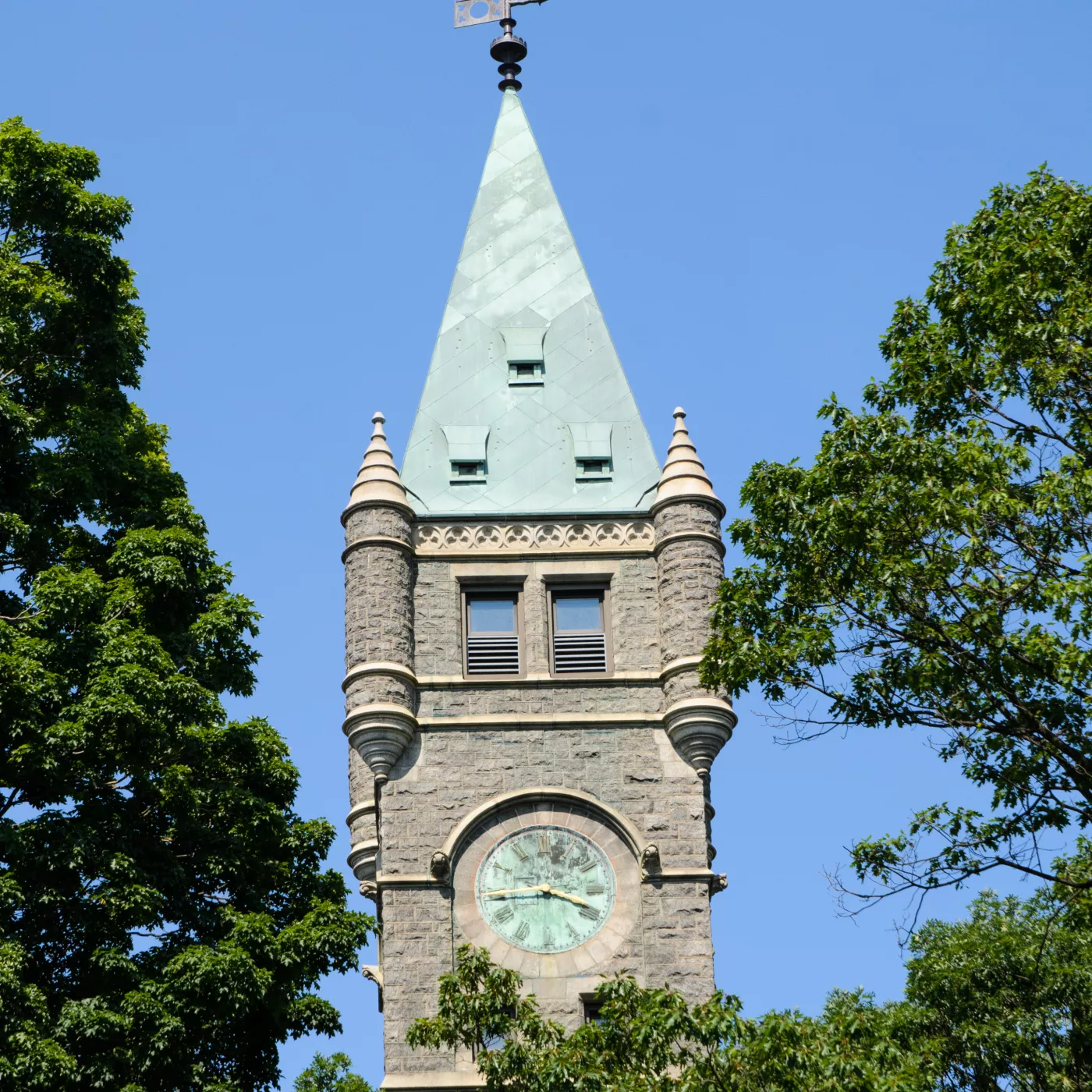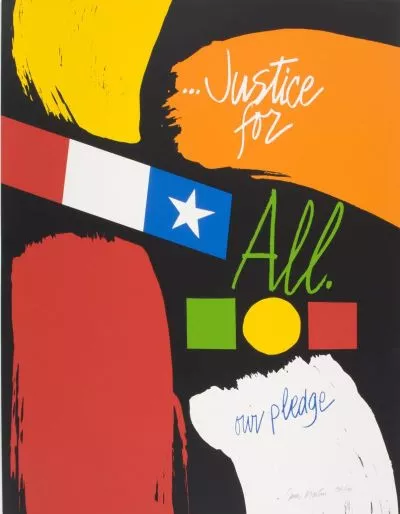A Public Reflection
from private musings
March 2025
As we are all finding ways to move through this increasingly surreal yet very real Time, we at the Social Justice Initiative (SJI) are sharing a framework that may help us navigate the turbulence and uncertainty. This is a time of struggle and questioning, both with “how to do” the work of justice and repair, and “how to be” sustained and whole during a time of overwhelm and fear. From these places of fear, the human reactions to threat so many of us are currently experiencing can include the familiar automatic responses named by Walter B. Canon a century ago:
- Freeze (before the threat)
- Flight (away from the threat)
- Fight (against the threat)
While other reactions have also been identified in intervening years – like “fawn” or “faint” – we suggest here another critical category of response: Unite.
We do not necessarily mean that each person comes together with all others in a unified response. Rather, we think of how the mid-1930s social worker and organizational consultant Mary Parker Follette wrote of coming to a shared understanding of where each person is, even during times of conflict. For the SJI, Unite means that we explore potential common ground, and seek the possibilities for moving forward together. In other words, as we honored during our January 23rd and 30th webinars, we tap into what our late colleague and friend Archbishop Desmond Tutu spoke of as our being hardwired for connection.
The SJI will continue to form and stay in community with folks like you - Kindred Spirits. And (y)our SJI will also be alert and ready to explore forming new relationships with individuals and organizations where common ground may not yet be known to exist… To Unite, to build Community anew.
As we all oscillate amongst Freeze, Flight, Fight and even Unite reactions – often experiencing direct attacks on ourselves, our institutions, and our values – we want to emphasize that each reaction is equally important and legitimate. Every one of us may experience any of these 4 possibilities at different points in time, in different interpersonal and social contexts. Conditions of heightened uncertainty, for example, may lead some of us to favor the Freeze reaction, while conditions of direct threat may amplify for others among us the impulse to Fight. The key is learning how to recognize “where” one is, and “why” one is there. These can be first steps in deciding on a course of action. In so doing we move from simply re-acting to being pro-active as to “what to do” next.
As framed by the Social Justice Initiative, 2025
The Zones of Opportunity in the graphic present another way to think about “where” one is, along a continuum from Comfort, Stretch, and Strain, to Panic. The responses we have written of thus far tend to fall within the outer circles of Panic or Strain. Panic responses shut down our ability to think, while Strain is where we oftentimes experience ongoing fatigue and burnout. These are real places we go, and also very difficult places to try to learn, grow, or connect. We also require real places of Comfort in order to soothe and find safety. At the same time, when one wishes to pause and find an intentional way forward, the circle of Stretch is usually the most effective place “to be.” Stretch is where we are most open to new possibilities, new connections, and new ways of being.
With this in mind, for many of us right now, going to Unite may be a Stretch.
Wherever you have been and wherever you are now in navigating uncertainty and fear, we thank you for walking with us as part of our SJI Community – as we strive to individually let our Lives speak as together we act.
To Be Continued…
A Public Reflection
February 2024
For quite a while now, we at the Social Justice Initiative (SJI) have been struggling to write a Statement in response to the growing number of immeasurable atrocities and injustices occurring all around us since our earlier Statement on Racial Injustice. While the SJI is located at Bryn Mawr College here in Pennsylvania, we have purposely also partnered with kindred others in the broader community to create Space and make Time for sharing perspectives and enacting practices that deepen our collective ability to best understand, convene dialogues, and respond.
We join with all of you reading this now in grieving the devastatingly senseless loss of Lives everywhere. We recognize the various shapes that violence can take: individual abuse at home, at work, or on the streets; communities without basic resources needed for survival; legislation that enshrines the inequitable treatment of people and communities; and conflicts between nations that increasingly escalate into war. Moreover, we recognize the immediate and multigenerational impact such violence can have on individuals and communities physically, emotionally, mentally, and spiritually. And we also recognize the need to take collective responsibility for past and current harms.
The ongoing acts of blatant and subversive violence, perpetuated through inequities and inequalities, have contributed to the SJI’s inability to “write a public statement;” we can never put an end – literally a period – at the end of such a statement. Just as when any of us thinks we have seen and spoken about “it all,” something else horrific happens, extending the list of atrocities we had earlier acknowledged.
Yet we know that silence can be misunderstood as complacency and even compliance. With that in mind, we turn from the idea of a Statement toward drafting this Public Reflection of both outrage and hope, of both fear and faith, honoring and holding the tensions that exist between these states of Being.
The SJI will continue to seek meaning “full” interconnections with individuals, organizations, and communities, locally, nationally, and globally, steadfastly committed to doing our part in bettering the Quality of Life for all.
We at (y)our SJI believe that it is precisely during times of violence that Community becomes most important. The SJI is such a Community, one grounded in the practice of dialogue as a central tool to (re)imagine and to co-create a world in which all Life is valued; a Community deliberately working toward everyone having the opportunity to engage in the processes of Self- and Other forgiveness and demonstrations of courage and compassion, learning and living the components of cultural humility and radical love. As our College has affirmed, we must all “condemn written, visual, oral, and physical attacks in all forms,” and stay “mindful of the humanity and the lived experiences that others bring to the table.”
To the SJI, dialogue isn’t just about talking. It’s about connecting, together creating communities that are responsive to the needs of everyone, providing opportunities for healing, reconciliation, and restoration.
We know that while this is easy to say, admittedly it’s hard to do – and even harder to sustain. Yet risking to engage in open-minded and open-hearted exchanges that include candor, transparency, and authenticity in Community with others is exactly what is needed, and especially now.
At the SJI we look forward to the day when we are able to put a period even at the end of these kinds of Public Reflections, as we continue to live into the practices of peace and justice, for all.
Thank you for walking with us on this journey of deep courage and great heart as we strive to individually let our Lives speak as together we act, recognizing that for right now reflections like this one will end with
To Be Continued …
A Statement on Racial Injustice
June 2020
During these unprecedented times of both high uncertainties and tragic realities, Social Justice Initiative remains committed to its vision: utilizing the Four Pathways to best see the ways of advancing the knowledge, values, and skills of those who seek to co-create a more just world for themselves and their communities.
Over the recent years, our global understanding of the need for healing has deepened as we fight against the widespread and deadly invasion of the COVID-19 pandemic. This microscopic virus and its variants has ensured that we are no longer able to deny the chronicity of multiple healthcare disparities and inequities. Even more recently we have all been reminded of our need to heal from another pandemic, one that has existed for as long as time itself– the infectious agents of Anti-Black racism and hate.
The SJI is unequivocal when we say "Black Lives Matter". We know that until we address the racial injustice of African-Americans, justice for everyone everywhere remains endangered and precarious.
We remember Eric Garner, Botham Jean, Tatiana Jefferson, Eric Reason, Dominique Clayton, Breonna Taylor, George Floyd, Rayshard Brooks, Amadou Diallo and countless others who senselessly lost their lives to police violence. We must remain steadfast in our commitment to doing our part in effecting genuine justice for all.
The SJI knows that the components of social justice can be taught, learned, embodied, and enacted within and among individuals and communities. We remain hope 'full' that now there will be the shared will to do so.
We thank you for continuing to be a part of our SJI Community, embracing you all as much needed Social Justice Warriors. We wish that you and everyone in your hearts stay safe and well in all ways, and look forward to our remaining connected.

Contact Us
Social Justice Initiative
Darlyne Bailey, Ph.D.
Founder & Executive Director of the Social Justice Initiative
Katherine E. McBride Professor Emeritus & Dean Emeritus of the Graduate School of Social Work and Social Research
Email: sji@brynmawr.edu
Phone: 610-526-5180

